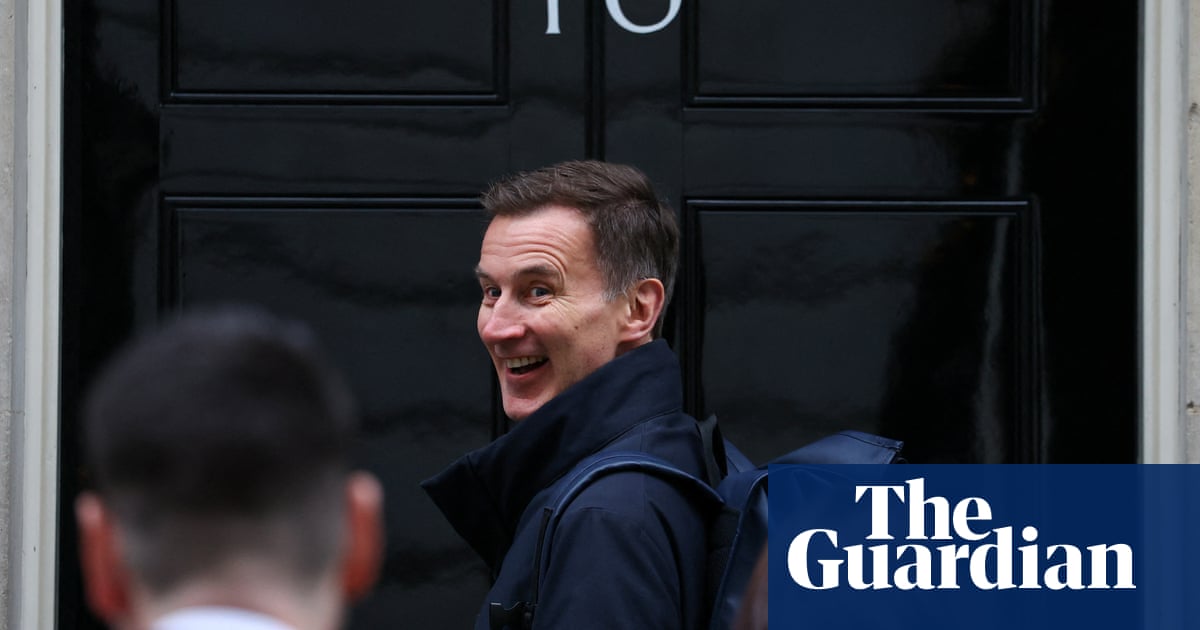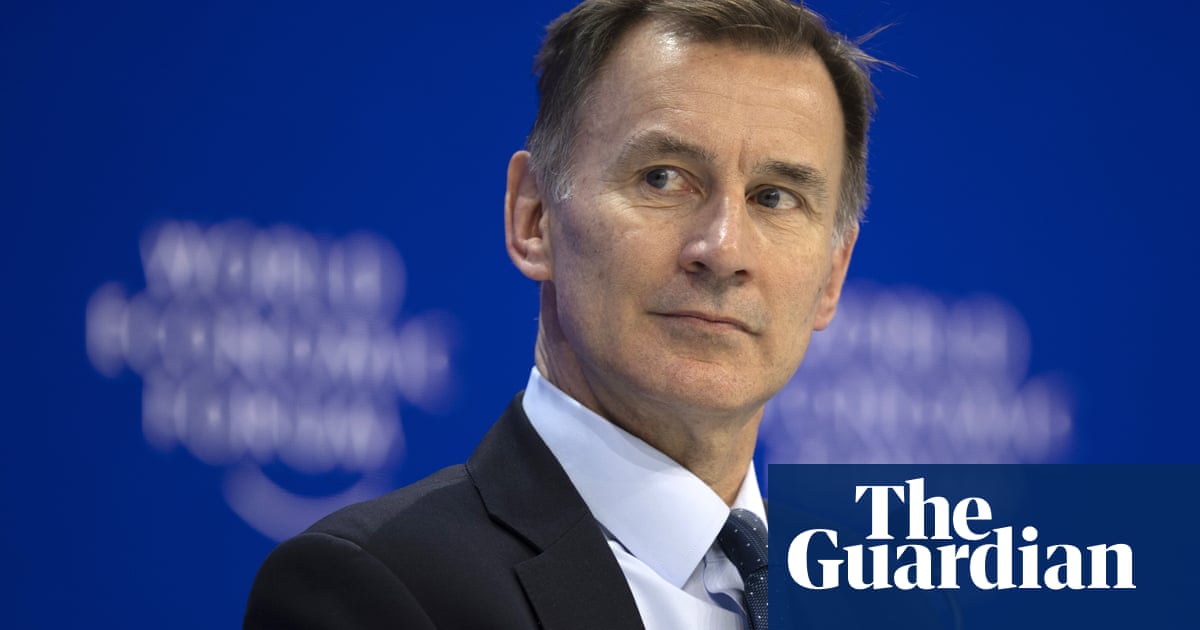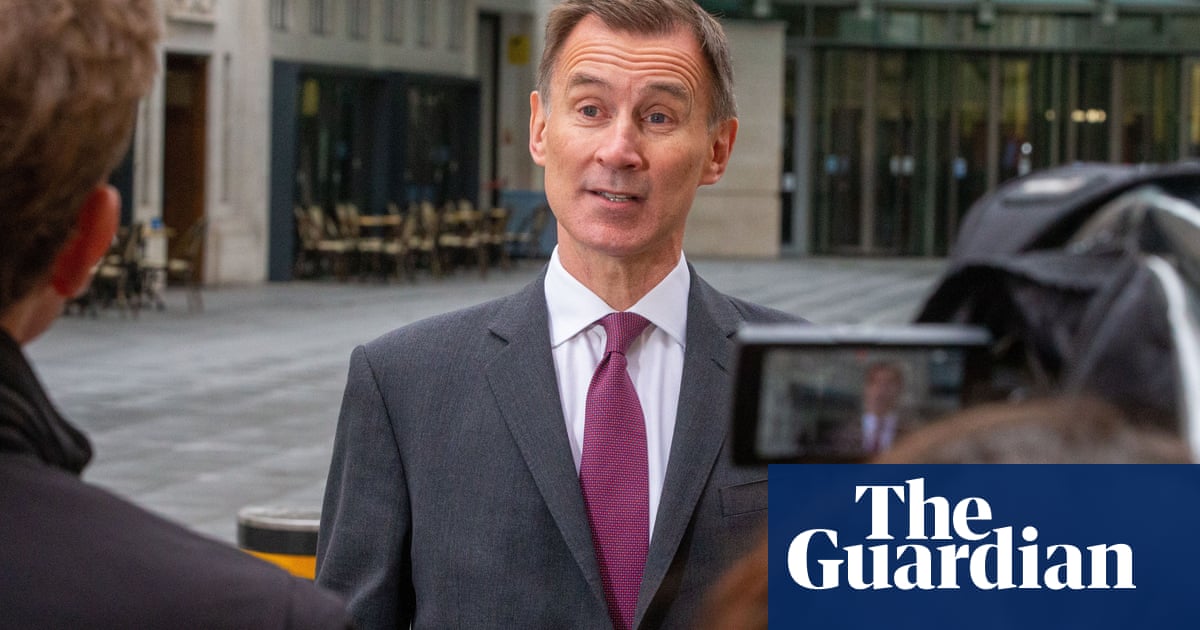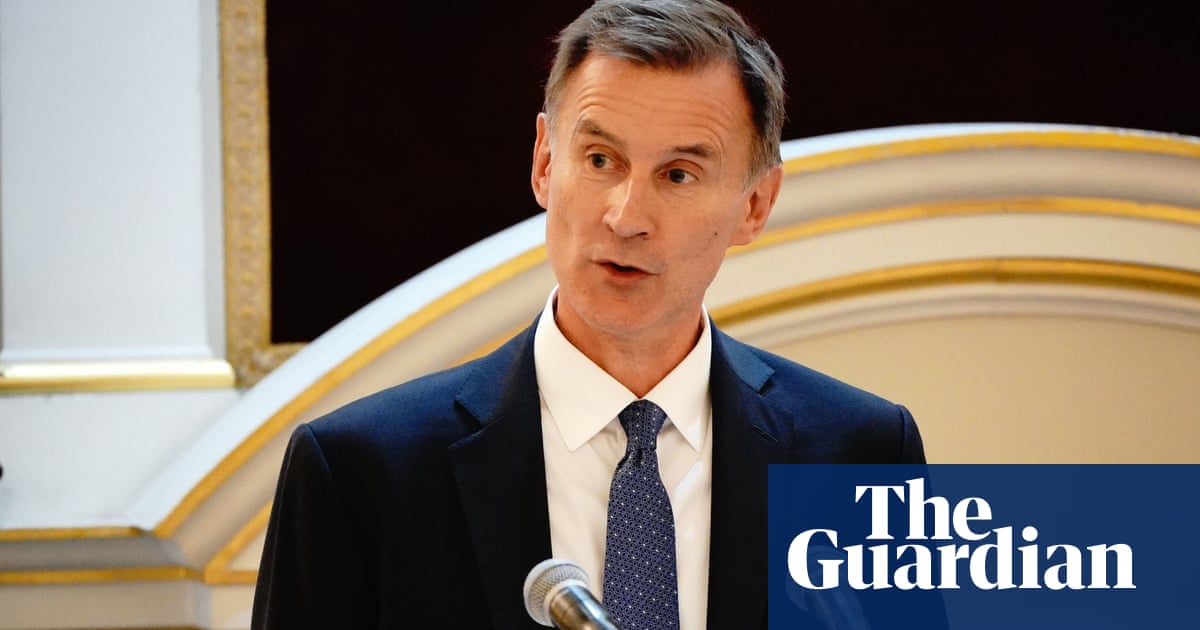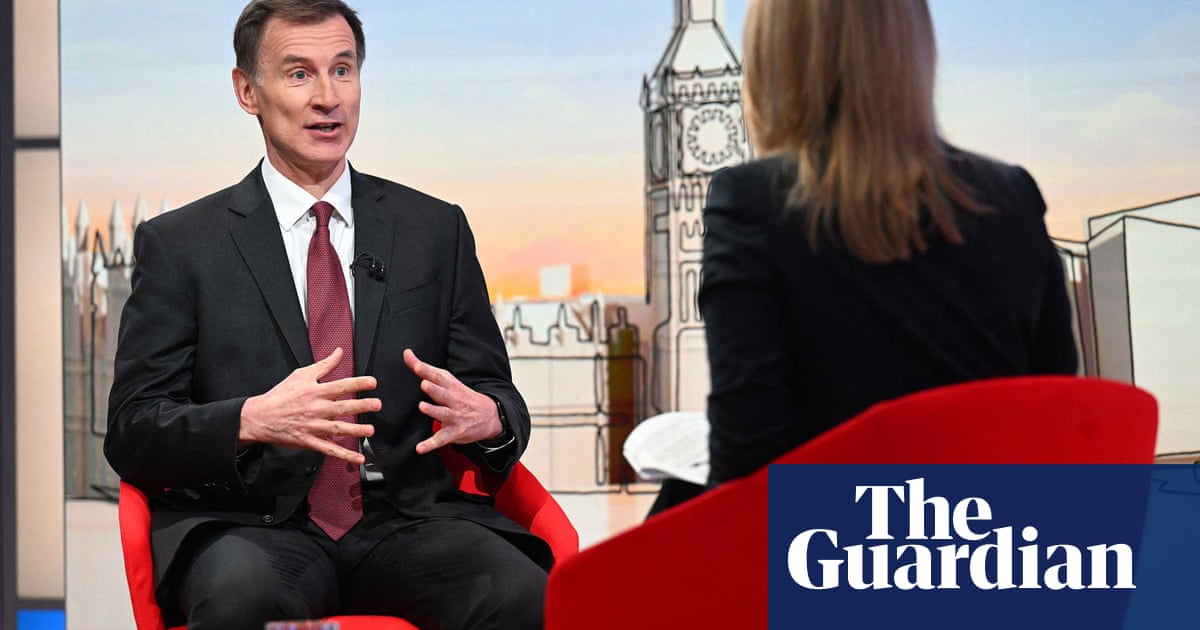
Jeremy Hunt has doubled down on his claim that earning £100,000 a year “doesn’t go as far as you might think” for people in his Surrey constituency, after he was criticised for being out of touch.
The chancellor had previously tweeted that the sum was “not a huge salary” for people in South West Surrey. The median salary for a full-time worker last year was £34,963 and in Surrey it is £42,000.
Hunt defended his remarks by saying that people in his constituency were living in an area of very high average house prices.
He told Sky News’s Sunday Morning with Trevor Phillips: “What sounds like a large salary – when you have house prices averaging around £670,000 in my area and you’ve got a mortgage and childcare costs – it doesn’t go as far as you might think.
“We weren’t able to afford to fund childcare for people on the higher salaries but I was simply saying that’s something I’d love to be able to look at in the next parliament.”
Hunt was also pressed on the issue in an interview with the BBC’s Kuenssberg on Sunday.
The chancellor said that even on what most people would consider is a very high salary, it does not go as far as you think, because of taxes, housing costs and childcare.
“I do accept that even on those higher salaries, people are feeling under pressure,” he said, while rejecting the idea that the cost of living crisis is over.
Hunt said the UK had been through a “very, very tough patch”, which he said was caused primarily by the invasion in Ukraine. But he said the UK needed to “stick to the course” as interest rates and mortgage rates had not yet begun to come down.
His remarks come after Andrea Leadsom, a Conservative minister, said of the drop in inflation: “It’s what we have been working towards, is seeing the cost-of-living crisis end.”
With Westminster increasingly preparing for an autumn election, Hunt appeared to confirm during his broadcast interviews that an October election, with a budget beforehand, was the working assumption of him and the prime minsiter.
Hunt said the Conservatives’ approach to improving the economy would also look at more tax cuts, further reform of welfare, trying to get more claimants back into work with tougher job placement requirements, and controlling migration.
Hunt also committed to the pensions “triple-lock” – the policy that guarantees an increase in line with average earnings, inflation or 2.5%, whichever is highest – in the Conservative party manifesto. There had previously been speculation that it could be put under review.
Speaking on the same programme, Anneliese Dodds, the Labour chair, said her party would not at this point make the same commitment and that people would have to wait until its manifesto was published for its position on pension spending.
Dodds said that on the economy, Labour would take a very different approach to the Conservatives, prioritising growth and stability. She cautioned people not to believe Hunt’s promises on tax cuts.
“We’ve had, of course, 14 years now where none of those promises actually have been secured under the Conservatives, we’re seeing living standards likely to be lower at the end of this parliament than at the beginning. It’s the first time in recorded history when that’s happened,” Dodds said.
“So, there is a very different approach from Labour. [The shadow chancellor] Rachel Reeves has set out a plan to deliver that economic growth that we desperately need. It’s on the basis of economic stability, making sure we have those fiscal rules that she set out a very long time ago.”




